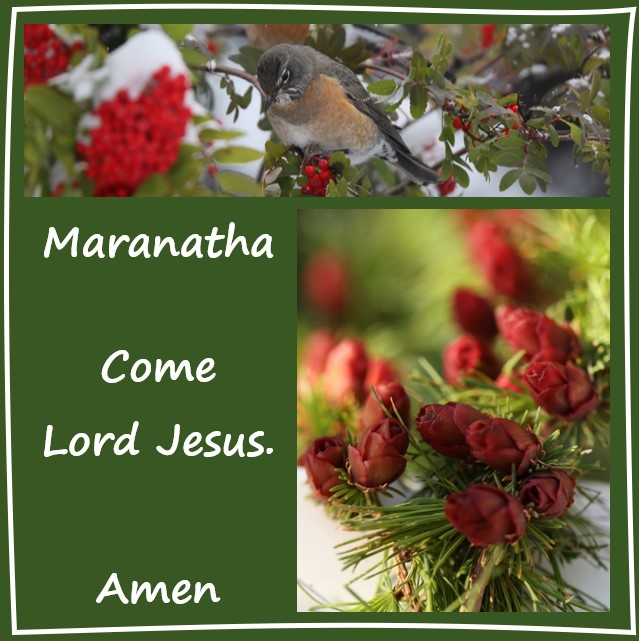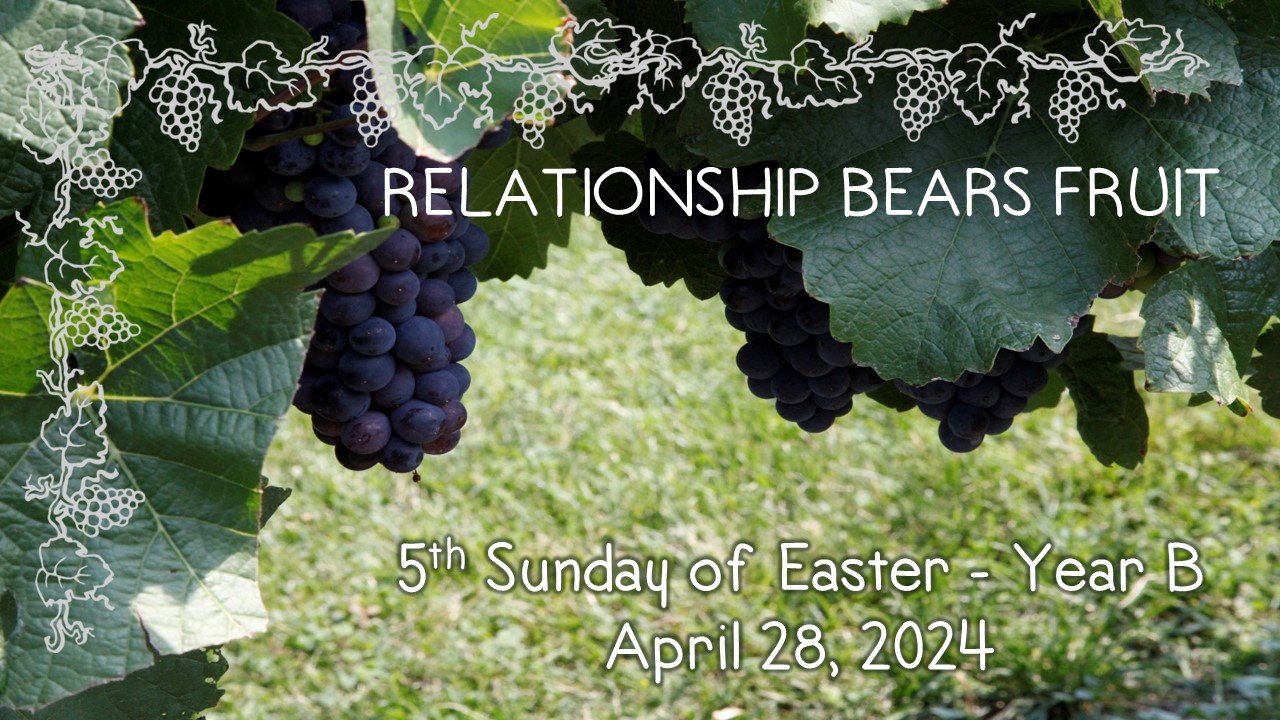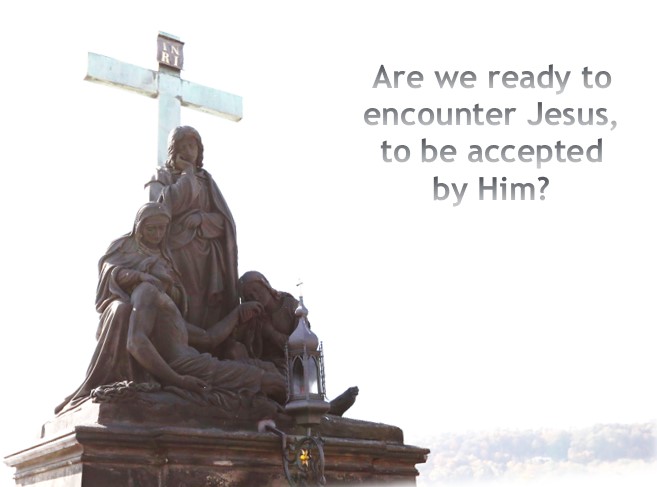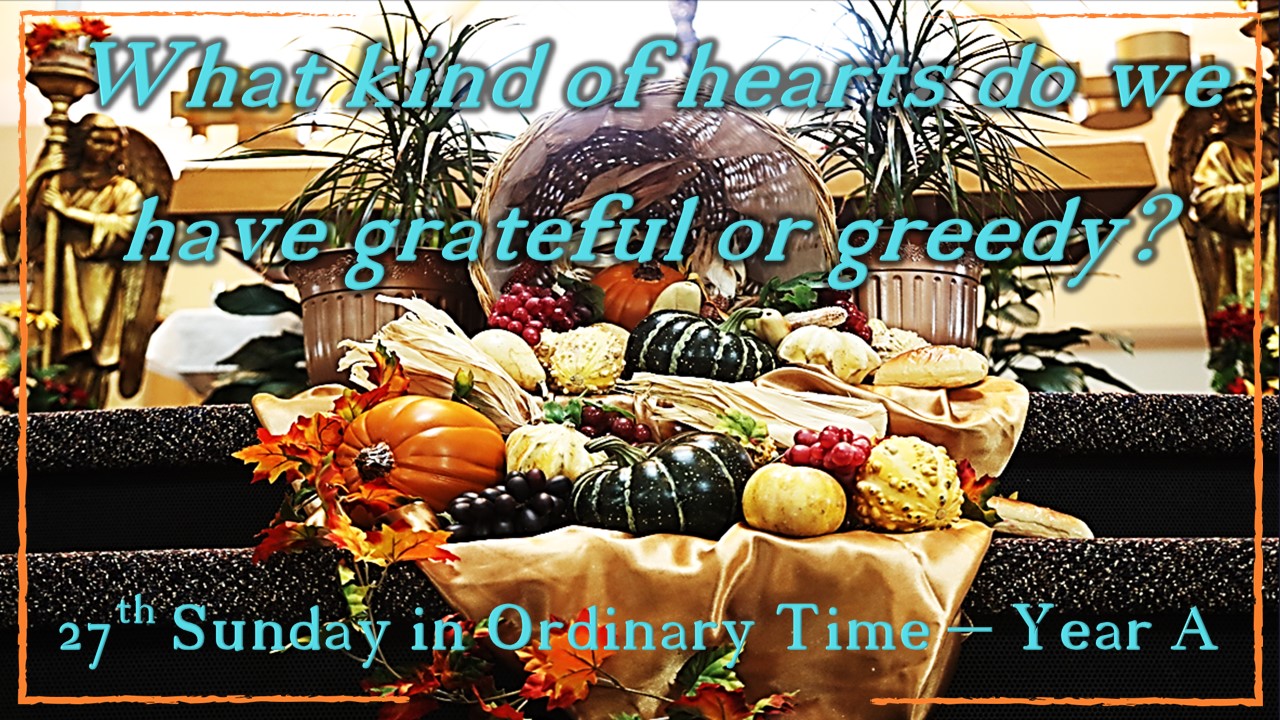
3rd Sunday of Advent – Year A ~ December 11, 2022
LET US SEE HIM WITH JOYFUL HEARTS
The third Advent Sunday is called “Gaudete Sunday” because on this day the Mass begins with the opening antiphon: “Gaudete in Domino semper” “Rejoice in the Lord always”. In the first week of Advent, we prayed for the restoration of hope. In the second week we prayed for the gift of peace which comes from the Lord to make us stronger and stronger in our daily life. Today also we start the second phase of Advent season which will have us reflect on the first coming of Jesus through the prophecies of the old. The coming two weeks will bring us to reflect on the “O Antiphons” having us meditate on the titles of Jesus. Here are the “O Antiphons” to reflect on:
O Wisdom of our God Most High, guiding creation with power and love: come to teach us the path of knowledge!
O Leader of the House of Israel, giver of the Law to Moses on Sinai: come to rescue us with your mighty power!
O Root of Jesse’s stem, sign of God’s love for all his people: come to save us without delay!
O Key of David, opening the gates of God’s eternal Kingdom: come and free the prisoners of darkness!
O Radiant Dawn, splendor of eternal light, sun of justice: come and shine on those who dwell in darkness and in the shadow of death.
O King of all nations and keystone of the Church: come and save man, whom you formed from the dust!
O Emmanuel, our King and Giver of Law: come to save us, Lord our God!
These “O Antiphons” invite us to rejoice in the Lord because he holds all divine power from his Heavenly Father. The Psalmist says (Psalm 96) “Let heavens be glad, and let the earth rejoice; let the sea roar, and all that fills it; let the field exult, and everything in it. Then shall all the trees of the forest sing for joy. Rejoice before the Lord; for his is coming to judge the earth. He will judge the world with righteousness, and the peoples with his truth”. This Sunday is called Gaudete Sunday to remind us that our Salvation is near, and King of the kings is going to be born. Someone described the Gaudete Sunday as follows: “Nature’s annual cycle is characterized by two phenomena, light and life. Out of the darkness of night comes light; out of death comes life. The transition from night to light characterizes the winter season; the transition from death to life is proper to summertime. The holy year of the Church is likewise divided into two phases which have similar characteristics.” Similarly, we are reminded by the Sacred Scriptures that you must rejoice in the Lord because our Salvation has come near. Someone asked St. Mother Teresa what the secret of her joy is in serving the poor and marginalized people, her answer stunned the world “Joy is a prayer — joy is a strength — joy is a love — joy is a net of love. . . A joyful heart is the normal result of a heart burning with love . . . loving as He loves, helping as He helps, giving as He gives, serving as He serves, rescuing as He rescues, being with Him twenty-four hours, touching Him in His distressing disguise.”
We must see him with joyful hearts because he is the reason of the season, and he is the center of our Christmas celebration. Let us follow the example of this girl in a story written by an unknown author to help us to understand how important Jesus is in our lives and for the world.
“Mommy, look!” cried my daughter, Darla, pointing to a chicken hawk soaring through the air.
“Uh huh,” I murmured, driving, lost in thought about the tight schedule of my day.
Disappointment filled her face. “What’s the matter, Sweetheart?” I asked, entirely dense.
“Nothing,” my seven-year-old said. The moment was gone. Near home, we slowed to search for the albino deer that comes out from behind the thick mass of trees in the early evening. She was nowhere to be seen. “Tonight, she has too many things to do,” I said.
Dinner, baths, and phone calls filled the hours until bedtime.
“Come on, Darla, time for bed!” She raced past me up the stairs. Tired, I kissed her on the cheek, said prayers and tucked her in.
“Mom, I forgot to give you something!” she said. My patience was gone.
“Give it to me in the morning,” I said, but she shook her head.
“You won’t have time in the morning!” she retorted.
“I’ll take time,” I answered defensively. Sometimes no matter how hard I tried, time flowed through my fingers like sand in an hourglass, never enough. Not enough for her, for my husband, and definitely not enough for me.
She wasn’t ready to give up yet. She wrinkled her freckled little nose in anger and swiped away her chestnut brown hair.
“No, you won’t! It will be just like today when I told you to look at the hawk. You didn’t even listen to what I said.”
I was too weary to argue; she hit too close to the truth. “Good night!” I shut her door with a resounding thud.
Later though, her gray-blue gaze filled my vision as I thought about how little time we really had until she was grown and gone.
My husband asked, “Why so glum?” I told him.
“Maybe she’s not asleep yet. Why don’t you check,” he said with all the authority of a parent in the right. I followed his advice, wishing it was my own idea.
I cracked open her door, and the light from the window spilled over her sleeping form. In her hand, I could see the remains of a crumpled paper. Slowly I opened her palm to see what the item of our disagreement had been.
Tears filled my eyes. She had torn into small pieces a big red heart with a poem she had written titled, “Why I Love My Mother!”
I carefully removed the tattered pieces. Once the puzzle was put back into place, I read what she had written:
Why I Love My Mother
Although you’re busy, and you work so hard You always take time to play I love you, Mommy because I am the biggest part of your busy day!
The words were an arrow straight to the heart. At seven years old, she had the wisdom of Solomon.
Ten minutes later I carried a tray to her room, with two cups of hot chocolate with marshmallows and two peanut butter and jelly sandwiches. When I softly touched her smooth cheek, I could feel my heart burst with love.
Her thick dark lashes lay like fans against her lids as they fluttered, awakened from a dreamless sleep, and she looked at the tray.
“What is that for?” she asked, confused by this late-night intrusion.
“This is for you because you are the most important part of my busy day!” She smiled and sleepily drank half her cup of chocolate. Then she drifted back to sleep, not really understanding how strongly I meant what I said.
St. Paul, in the second reading, advises us to “rejoice always” by leading blameless, holy and thankful lives guided by the Holy Spirit, because Christ is faithful to his promise that he will come again to reward us. In the Gospel the questions and the message of St. John the Baptist is a beautiful reminder to see the reason of the season. We need to ignore the secularism and worldly approach to this beautiful and salvific season, and we must rejoice in the Lord that “He became man and dwelt among us”.
St. Augustine reflecting on the Gospel today says “John is the voice, but the Lord is the Word who was in the beginning. John is the voice that lasts for a time; from the beginning Christ is the Word who lives for ever. Take away the word, the meaning, and what is the voice? Where there is no understanding, there is only a meaningless sound. The voice without the word strikes the ear but does not build up the heart. However, let us observe what happens when we first seek to build up our hearts. When I think about what I am going to say, the word or message is already in my heart. When I want to speak to you, I look for a way to share with your heart what is already in mine. In my search for a way to let this message reach you, so that the word already in my heart may find a place also in yours, I use my voice to speak to you. The sound of my voice brings the meaning of the word to you and then passes away. The word which the sound has brought to you is now in your heart, and yet it is still also in mine.
When the word has been conveyed to you, does not the sound seem to say: The word ought to grow, and I should diminish? The sound of the voice has made itself heard in the service of the word, and has gone away, as though it were saying: My joy is complete. Let us hold on to the word; we must not lose the word conceived inwardly in our hearts. Do you need proof that the voice passes away, but the divine Word remains? Where is John’s baptism today? It served its purpose, and it went away. Now it is Christ’s baptism that we celebrate. It is in Christ that we all believe; we hope for salvation in him. This is the message the voice cried out.
Because it is hard to distinguish word from voice, even John himself was thought to be the Christ. The voice was thought to be the word. But the voice acknowledged what it was, anxious not to give offense to the word. I am not the Christ, he said, nor Elijah, nor the prophet. And the question came: Who are you, then? He replied: I am the voice of one crying in the wilderness: Prepare the way for the Lord.
The voice of one crying in the wilderness is the voice of one breaking the silence. Prepare the way for the Lord, he says, as though he were saying: “I speak out in order to lead him into your hearts, but he does not choose to come where I lead him unless you prepare the way for him.” To prepare the way means to pray well; it means thinking humbly of oneself. We should take our lesson from John the Baptist. He is thought to be the Christ; he declares he is not what they think. He does not take advantage of their mistake to further his own glory.
If he had said, “I am the Christ,” you can imagine how readily he would have been believed, since they believed he was the Christ even before he spoke. But he did not say it; he acknowledged what he was. He pointed out clearly who he was; he humbled himself. He saw where his salvation lay. He understood that he was a lamp, and his fear was that it might be blown out by the wind of pride.
The question of John the Baptist should be our question to examine ourselves that when we have made Jesus our Reason for the Season then should we wait for someone else or …?
A 92-year-old man, short, very well-presented, who took great care of his appearance, was moving into an senior’s home. His wife of 70 years had recently died, and he was obliged to leave his home. After waiting several hours in the retirement home lobby, he gently smiled as an employee told him his room was ready. As he slowly walked to the elevator, using his cane, the employee described his small room to him, including the sheet that hung at the window, which served as a curtain. “I like it very much”, he said, with the enthusiasm of an eight-year-old boy who had just been given a new puppy. “Sir, you haven’t even seen the room yet. Hang on a moment, we are almost there.” “That has nothing to do with it,” he replied. “Happiness is something I choose in advance. Whether or not I like the room does not depend on the furniture, or the decor – rather it depends on how I decide to see it. It is already decided in my mind that I like my room. It is a decision I make every morning when I wake up. “I can choose. I can spend my day in bed enumerating all the difficulties that I have with the parts of my body that no longer work very well, or I can get up and give thanks to heaven for those parts that are still in working order. Every day is a gift, and as long as I can open my eyes, I will focus on the new day, and all the happy memories that I have made during my life. “Old age is like a bank account. You withdraw in later life what you have deposited along the way. ”
The words of the old man present the exact message which we find in the Sacred Scripture today. The first reading tells us that we should rejoice because the promised Messiah is coming as our Savior and liberator, saving us by liberating us from our bondages. The Responsorial Psalm of the day is taken from Mary’s Magnificat, in which she exclaims: “My soul glorifies the Lord, my spirit finds joy in God my Savior.”
As we celebrate this Gaudete Sunday and light the third candle, the reply of Jesus to St. John the Baptist sums up everything “what do you see….? That’s the exact purpose of rejoicing in the Lord that he has taken all our pain and suffering on to him and died on the Cross so that we may have life and life in abundance. It seems Christmas is two weeks away, but we need to rejoice every day in the Lord as St. Paul says “rejoice, rejoice and again I say rejoice in the Lord”.
Pope Francis reflects on this Sunday in this way “Rejoice in the Lord, means always being joyful, even when things do not go according to our wishes; but there is that profound joy, which is peace: that too is joy; it is within. And peace is a joy “at the ground level”, but it is a joy. Distress, difficulties, and suffering pass through each person’s life, we are all familiar with them; and so often the reality that surrounds us seems to be inhospitable and barren, like the desert in which the voice of John the Baptist resonated, as today’s Gospel passage recalls. But the very words of the Baptist reveal that our joy rests on a certainty, that this desert is inhabited: “among you” – he says – “stands one whom you do not know”. It refers to Jesus, the Father’s envoy who comes, as Isaiah stresses, “to bring good tidings to the afflicted; he has sent me to bind up the broken-hearted, proclaim liberty to the captives, and the opening of the prison to those who are bound; to proclaim the year of the Lord’s favour”. These words, which Jesus will speak in his discourse at the synagogue of Nazareth (Lk 4:16-19), clarify that his mission in the world consists in the liberation from sin and from the personal and social slavery that it produces. He has come to the earth to restore to mankind the dignity and freedom of the Children of God — which only he can communicate — and thereby to give joy.
A Christian’s joy is not bought; it cannot be bought. It comes from faith and from the encounter with Jesus Christ, the reason for our happiness. And when we are rooted in Christ, the closer we are to Jesus, the more we find inner peace, even among everyday contradictions. For this reason, a Christian, having encountered Jesus, cannot be a prophet of misfortune, but a witness and herald of joy. A joy to share with others; an infectious joy that renders the journey of life less toilsome.
This Sunday of we are going to get Baby Jesus figurine which reminds us that became flesh and dwelt among us, and we are able to see him to rejoice. This reminds us that the crib is a school of life where we can learn the secret of true joy. This does not consist in having many things but in feeling loved by the Lord, in giving oneself as a gift for others and in loving one another. Let us look at the crib. Our Lady and St Joseph do not seem to be a very fortunate family; their first child was born in the midst of great hardship; yet they are full of deep joy, because they love each other, they help each other and, especially, they are certain that God, who made himself present in the little Jesus, is at work in their story. And the shepherds? What did they have to rejoice about? That Newborn Infant was not to change their condition of poverty and marginalization. But faith helped them recognize the “babe wrapped in swaddling clothes and lying in a manger” as a “sign” of the fulfilment of God’s promises for all human beings, “with whom he is pleased” (Lk 2: 12, 14).
This is what true joy consists in: it is feeling that our personal and community existence has been visited and filled by a great mystery, the mystery of God’s love. In order to rejoice we do not need things alone but love and truth: we need a close God who warms our hearts and responds to our deepest expectations. This God is manifested in Jesus, born of the Virgin Mary. Therefore that “image of baby Jesus” which we place in a stable or a grotto is the centre of all things, the heart of the world. Let us pray that every person, like the Virgin Mary, may accept as the center of his or her life the God who made himself a Child, the source of true joy.
An old story tells that one day, a countryman knocked hard on a monastery door. When the monk tending the gates opened up, he was given a magnificent bunch of grapes. Brother, these are the finest my vineyard has produced. I have come to bear them as a gift. Thank you! I will take them to the Abbot immediately, he will be delighted with this offering.
No! I brought them for you. For whenever I knock on the door, it is you opens it. When I needed help because the crop was destroyed by drought, you gave me a piece of bread and a cup of wine every day.
The monk held the grapes and spent the entire morning admiring it. And decided to deliver the gift to the Abbot, who had always encouraged him with words of wisdom.
The Abbot was very pleased with the grapes, but he recalled that there was a sick brother in the monastery and thought: “I’ll give him the grapes. Who knows, they may bring some joy to his life.”
And that is what he did. But the grapes did not stay in the sick monk’s room for long, for he reflected: “The cook has looked after me for so long, feeding me only the best meals. I’m sure he will enjoy these.”
The cook was amazed at the beauty of the grapes. So perfect that no one would appreciate them more than the sexton; many at the monastery considered him a holy man, he would be best qualified to value this marvel of nature.
The sexton, in turn, gave the grapes as a gift to the youngest novice, that he might understand that the work of God is in the smallest details of Creation. When the novice received them, he remembered the first time he came to the monastery, and of the person who had opened the gates for him; it was that gesture which allowed him to be among this community of people who knew how to value the wonders of life.
And so, just before nightfall, he took the grapes to the monk at the gates. – Eat and enjoy them – he said. – For you spend most of your time alone here, and these grapes will make you very happy. The monk understood that the gift had been truly destined for him, and relished each of the grapes, before falling into a pleasant sleep. Thus, the circle was closed; the circle of happiness and joy, which always shines brightly around generous people.
Jesus is the reason of the season to rejoice and be glad in him who shared our humanity while he remains all divine.
Other Sermons In This Series

5th Sunday of Easter – Year B ~ April 28, 2024
April 25, 2024

31st Sunday in Ordinary Time Year C ~ October 30, 2022
October 28, 2022

27th Sunday in Ordinary Time – Year A ~ October 8, 2023
October 06, 2023

